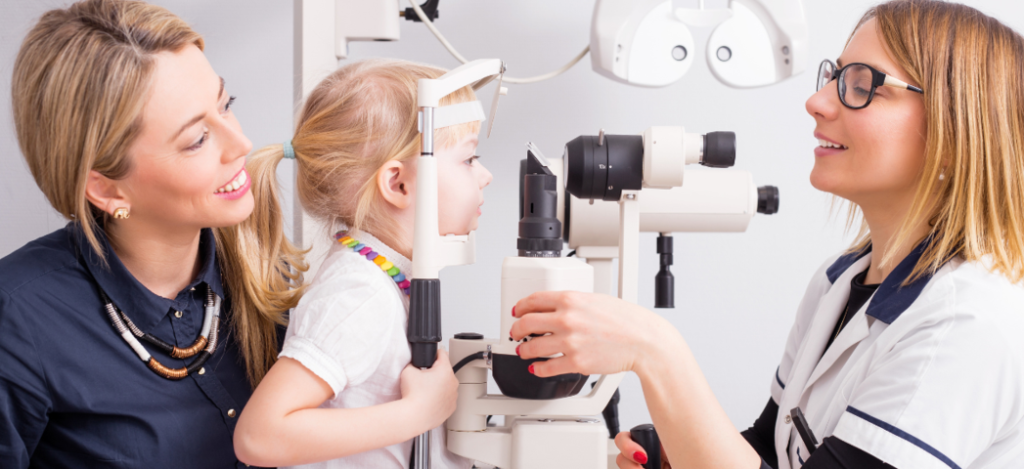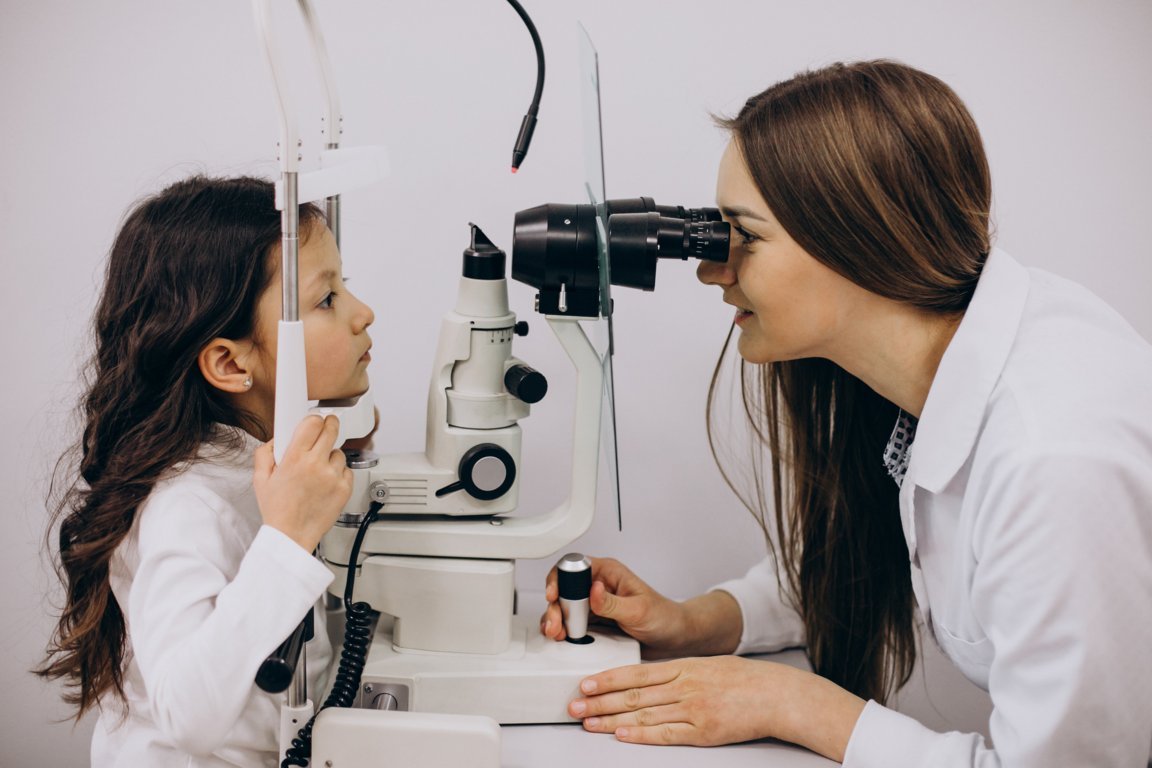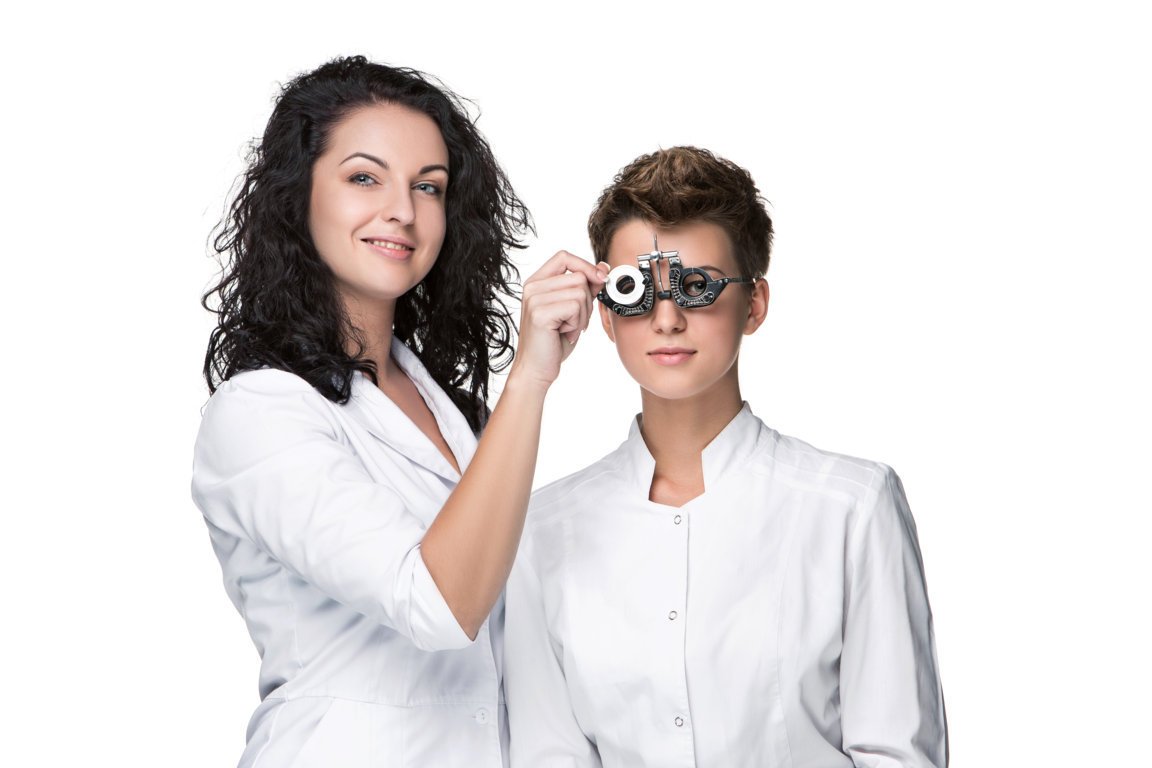
Children’s Eye Health
Some children have a basic sight check at school between the ages of four and five. However, this is not the case for all children and shouldn’t be relied upon as an alternative to a full eye examination in an opticians. Eye tests for children are free on the NHS.
If you have any concerns about your child, do not hesitate to book them in for a test. Your child does not have to be able to read or talk to have a test.
Wearing spectacles will not make your child’s eyes worse. Their prescription is dictated by the internal size and shape of the eye – glasses will not change this.
If your child has a lazy eye, wearing glasses may permanently improve their eyesight. If it is not corrected by age seven or eight, your child’s sight may be permanently negatively affected.
If there is any history of squint or lazy eye in the family; if you notice any turn in their eyes; if you notice white, yellow or orange colour in their pupils, or red in one eye (not both) in flash photographs; if you have any concerns about your child at all, please contact us as soon as possible for an eye examination free under the NHS.

Which children should be tested as a matter of course?
You should make sure your child’s eyes are tested if:
- you have any concerns
- there is a history of needing strong glasses at a young age
- there is a history of squint or lazy eye in the family
- if your child has any additional needs
Signs to look out for:
- having one eye turns in or out (this may be easier to spot when they are tired)
- rubbing their eyes a lot
- watery eyes
- clumsiness and poor hand-to-eye co-ordination
- avoiding reading, writing or drawing
- screwing up their eyes when they read or watch TV
- sitting very close to the TV, or holding books or objects close to their face
- having behaviour or concentration problems at school
- blurred or double vision, or unexplained headaches

At Brown and Wenman, we provide free NHS eye examinations for all children under 16. Children aged 16, 17 and 18 who are still in full time education are also covered by the NHS.
If your child requires spectacles, we have a wide range available covered by the NHS voucher system. Should you wish to upgrade their frame to a designer you are welcome to do so and pay a top-up.
If your child doesn’t need spectacles, please remember to protect their eyes from the harmful UV with sunglasses.
